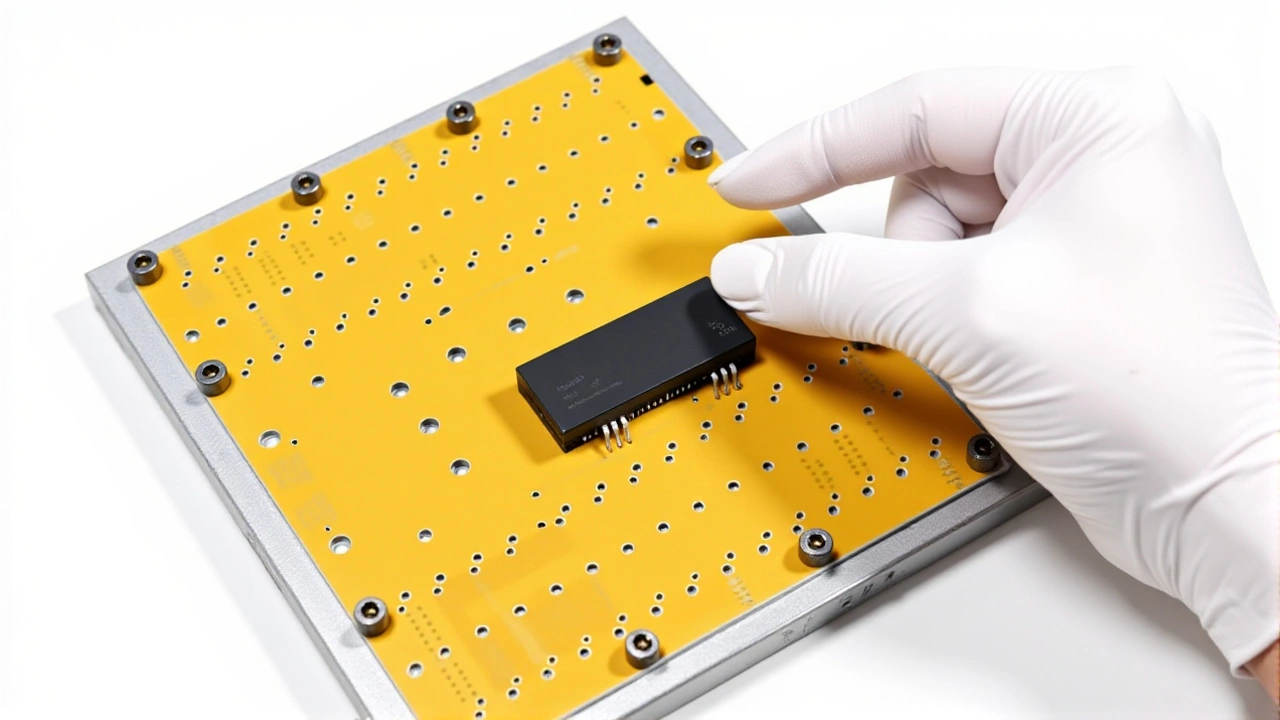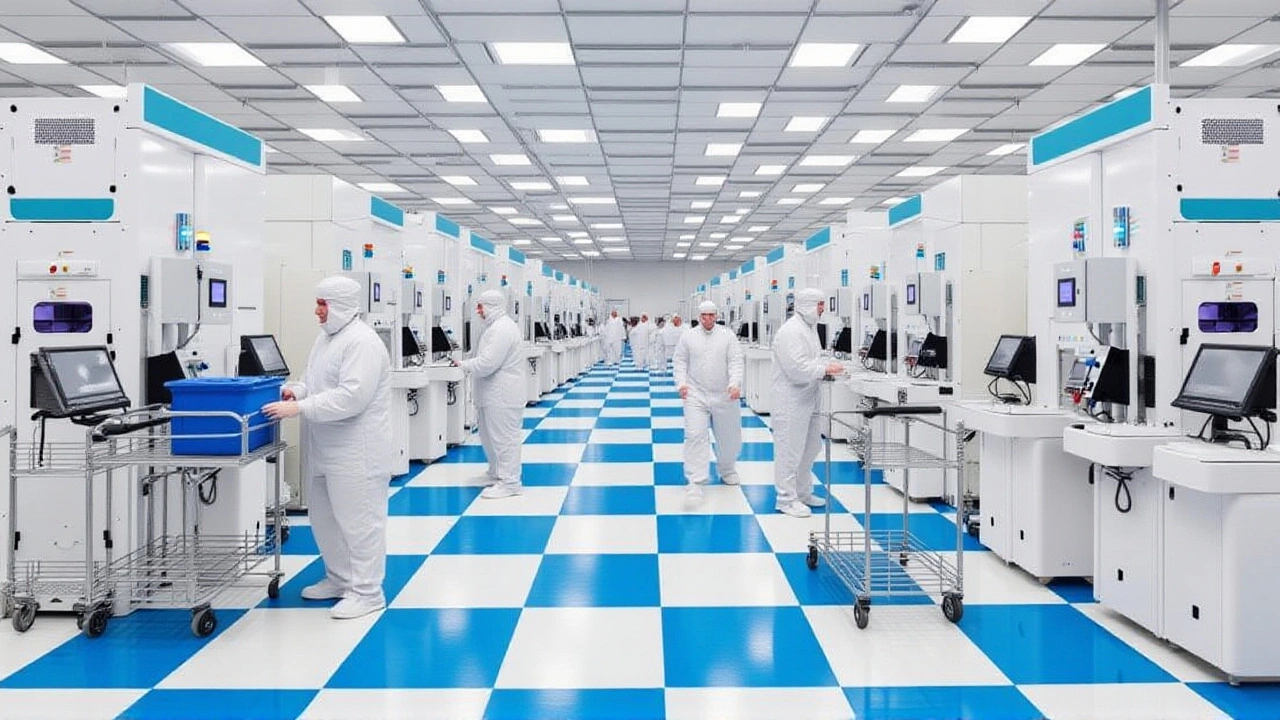On a quiet Wednesday in November 2025, IBM quietly unveiled its latest quantum breakthrough: the Nighthawk quantum computing chip and the experimental Loon processor. It wasn’t a splashy keynote. No flashing lights. Just a technical release that sent ripples through labs, boardrooms, and defense departments from Armonk, New York to Beijing. This isn’t just another faster chip. It’s the first real step toward a new kind of computing — one that doesn’t just improve on what we have, but replaces the rules entirely.
The Paradigm Shift Nobody Asked For, But Everyone Needs
For years, we’ve been told AI is the future. And yes, large language models have reshaped everything from customer service to content creation. But beneath the hype, something far more fundamental is stirring. As Sridhar Tayur, professor at Carnegie Mellon University’s Tepper School of Business in Pittsburgh, Pennsylvania, put it: “A fighter jet is not a faster Ferrari because it has wings. Quantum computing is not just a faster classical computer, because it works on a different principle.”
That’s the core. Classical computers use bits — 0s and 1s. Quantum computers use qubits, which can be 0, 1, or both at once. This superposition, combined with entanglement, lets them explore millions of possibilities simultaneously. The result? Problems that would take today’s supercomputers thousands of years could be solved in minutes.
From Lab Curiosity to Industry Game-Changer
The numbers are staggering. According to McKinsey & Company, quantum computing could unlock up to $1.3 trillion in economic value across pharmaceuticals, finance, logistics, and materials science by 2035. That’s not speculation — it’s based on surveys of 150 top tech executives, investors, and academics across North America, Europe, and Asia-Pacific. A full 72% believe a fully fault-tolerant quantum computer — one that doesn’t collapse under its own errors — will arrive by then.
IBM, headquartered in Armonk, New York, has set an aggressive internal deadline: fault-tolerant quantum computing by December 31, 2029. Their Nighthawk chip, the latest in a line of quantum processors, already outperforms its predecessor in qubit count and coherence time. It’s not ready for your laptop — yet — but it’s the first chip that can reliably run algorithms designed for real-world industrial problems.
Meanwhile, specialized foundation models — not the flashy chatbots you see online — are already making waves. Cisco’s Outshift research division, led by executive Vijoy Pandey in San Jose, California, reports that quantum-influenced models have predicted over 200 million protein structures and discovered 2.2 million new materials. That’s not science fiction. That’s happening now, in labs you’ve never heard of.
The Roadblocks Are Still Immense
Don’t get fooled by the headlines. Quantum computing isn’t plug-and-play. It’s more like trying to run a Formula 1 engine inside a freezer at -273°C. Most current quantum systems require near-absolute zero temperatures, extreme isolation from electromagnetic noise, and error correction schemes that consume more qubits than they save. Decoherence — the moment a qubit loses its quantum state — remains the silent killer.
“It’s not a matter of ‘if,’ but ‘when,’” says Natarajan, a quantum expert not affiliated with any public institution in the KTVZ report. “But we’re still likely a decade or two away from seeing this technology deliver on its full promise.”
Even IBM’s 2029 target feels optimistic to many. The hardware, software, and talent pipeline aren’t aligned. Training even one skilled quantum engineer can take five years. And the cost? A single quantum system can run $10 million or more. Only governments and mega-corporations can afford the gamble.

Why This Matters to Everyone — Even If You Don’t Use a Computer
Here’s the twist: you won’t buy a quantum laptop. But you’ll feel its impact in ways you can’t ignore.
- Drugs that cure cancer or Alzheimer’s could be designed in months, not decades.
- Materials for lighter, stronger batteries? Quantum simulations could crack that overnight.
- Your financial portfolio? Quantum algorithms could detect fraud patterns invisible to classical systems.
- Climate models? We could simulate entire ecosystems with atomic precision — finally knowing how to save the Arctic.
And then there’s security. The same quantum power that breaks current encryption could also build unbreakable quantum networks. That’s why the U.S. Department of Energy, the European Union Quantum Flagship, and China’s National Laboratory for Quantum Information Sciences are each pouring billions into R&D. This isn’t just business — it’s national security.
What Comes After Quantum? The Next Internet
Independent analyst Michael Love wrote on his platform in September 2024 that quantum computing isn’t the endgame — it’s the gateway. “We’ve built the smartphone,” he said. “Now we’re building the internet that runs on it.” He calls this next layer “Quantum-Enhanced Artificial General Intelligence” — a system that doesn’t just mimic human thought, but understands context, causality, and creativity at a level no LLM ever could.
It’s a wild idea. But if you think about it, generative AI was once considered impossible too. Then came GPUs, cloud computing, and massive datasets. Quantum computing is the next device. And the infrastructure to support it? That’s what’s being built right now — quietly, in labs, in vaults, in places you’ll never see.

What’s Next? The Race Is On
By 2027, we’ll likely see the first commercial quantum cloud services — not for consumers, but for pharmaceutical giants, banks, and aerospace firms. By 2030, governments will mandate quantum-safe encryption standards. By 2035, we may look back and realize that the real revolution didn’t start with ChatGPT — it started with a chip named Nighthawk.
The question isn’t whether quantum computing will change the world. It already is. The question is: Are you ready for what comes after?
Frequently Asked Questions
How soon will quantum computing affect my daily life?
You won’t notice it directly, but you’ll feel it indirectly. By 2030, drugs developed using quantum simulations could be in pharmacies. Your electric car’s battery might last 50% longer thanks to new materials discovered via quantum modeling. Even your financial advisor may use quantum-powered risk algorithms by then. The impact is systemic, not personal.
Why is IBM’s 2029 deadline so important?
IBM’s 2029 target for fault-tolerant quantum computing is a benchmark for the entire industry. If they hit it, it proves quantum systems can scale reliably — unlocking investment, talent, and regulatory support. Missing it would delay commercial adoption by years. Other players like Google and Quantinuum are racing to match or beat that timeline.
What’s the difference between quantum computing and AI?
AI learns patterns from data — it’s statistical. Quantum computing manipulates probability at the subatomic level to solve problems no classical computer can handle. Think of AI as a brilliant librarian who finds books. Quantum computing is a machine that can rewrite the library’s entire catalog in seconds. They’re complementary: quantum will make AI far more powerful, not replace it.
Is quantum computing a threat to cybersecurity?
Yes — and that’s why it’s urgent. Quantum computers could break today’s public-key encryption (RSA, ECC) within minutes. That’s why governments and banks are already developing “post-quantum cryptography.” The transition must begin now. If you’re using online banking or encrypted messaging, you’re already in the crosshairs of this looming shift.
Why are so many countries investing billions?
Because whoever masters quantum computing first will dominate the next century’s economy and defense systems. From designing stealth materials to breaking enemy codes, quantum gives strategic advantage. The U.S., EU, and China see this as the new space race — not for flags, but for computational supremacy. Losing means economic obsolescence.
Can I learn quantum computing today?
Absolutely. IBM and Google offer free cloud access to real quantum processors. Platforms like Qiskit and Cirq let students run quantum algorithms from their laptops. You don’t need a PhD — just curiosity. Thousands of engineers are already learning. The field needs coders, physicists, and even designers. The tools are here. The question is: Will you be ready when the wave hits?






Written by Barclay Westmoreland
Hi there! I'm Barclay Westmoreland, an entertainment expert with a passion for all things cruise-related. As a seasoned traveler and performer, I've had the privilege of exploring the world's most luxurious cruise lines and have made it my mission to share my experiences with others. I thoroughly enjoy writing about the latest trends, exciting destinations, and unique onboard experiences, aiming to inspire and inform fellow cruise enthusiasts. Whether you're a first-time cruiser or a seasoned sailor, I'm here to help you navigate the vast world of cruise entertainment.
All posts: Barclay Westmoreland